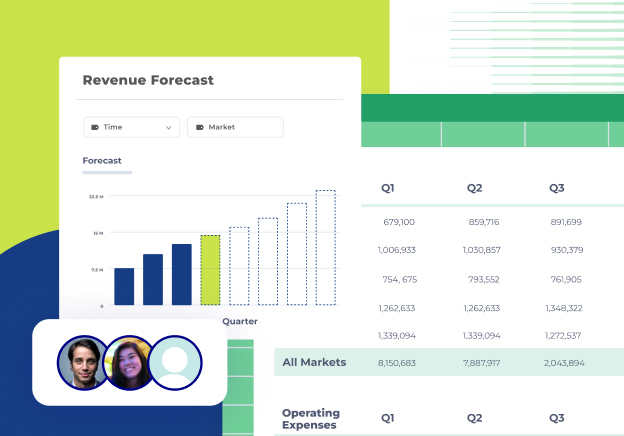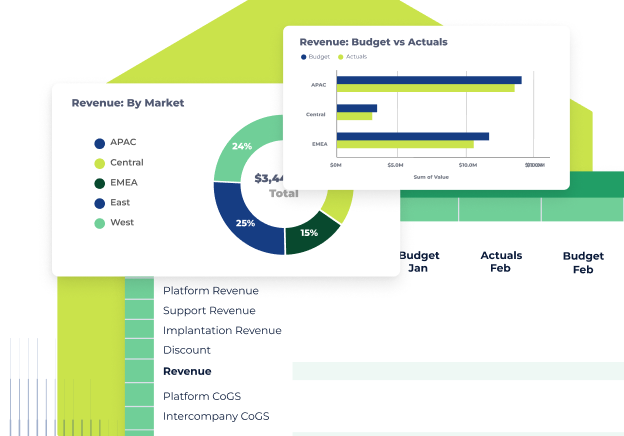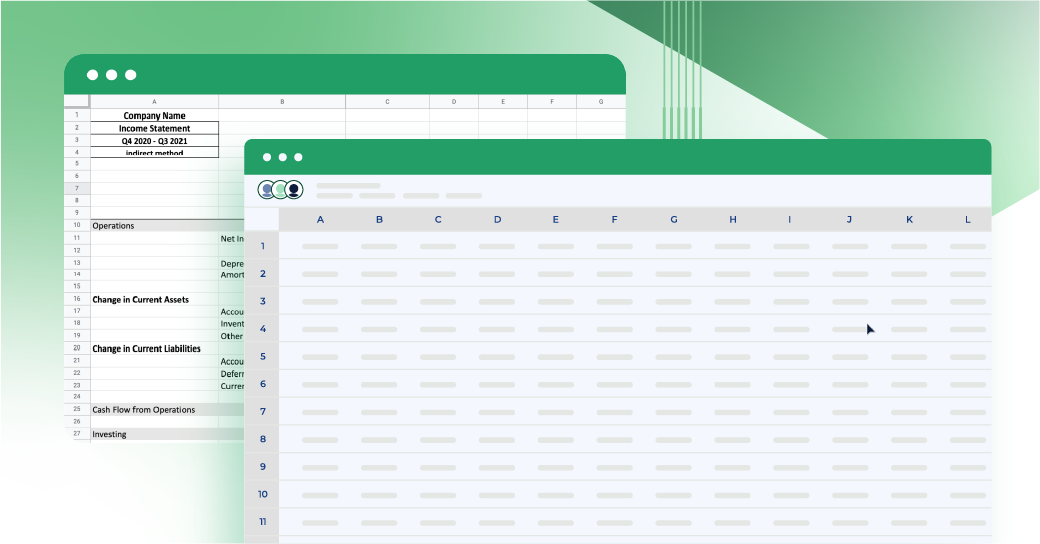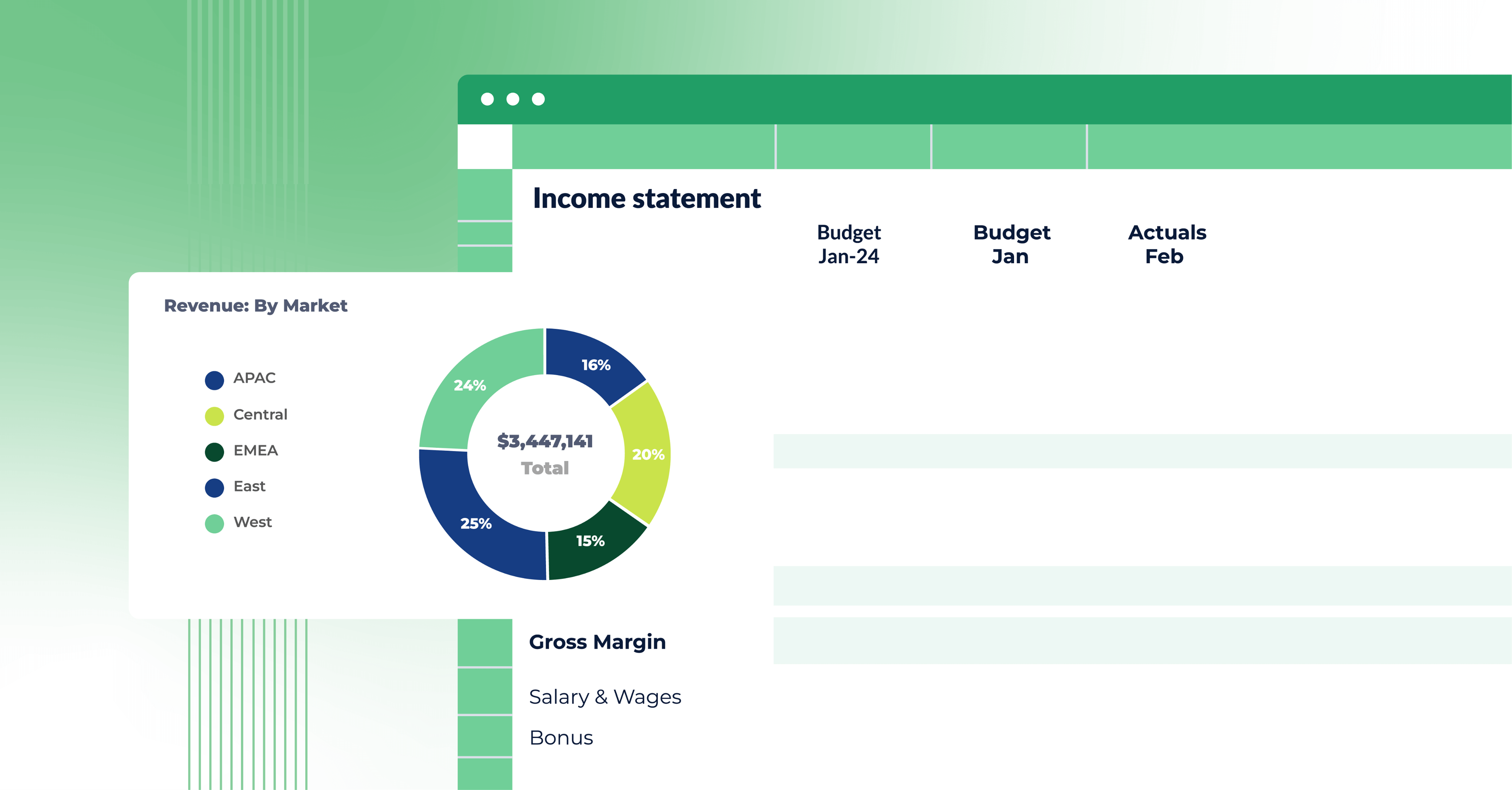Why is relationship-building important for finance leaders?
As finance leaders, we often get caught up in the numbers, analyses, and reports. While those things are certainly important, the real magic happens when we step out from behind our desks and start building relationships across the organization.
Trust is everything in a successful organization. When our colleagues from different departments trust us, they're more likely to share valuable information, collaborate on projects, and seek our advice. But trust isn’t something you just get—it’s something you earn through consistent and transparent communication.
Also, when we understand the perspectives and challenges of other teams, we can make better financial decisions. Knowing what's happening on the ground, whether it’s in sales, marketing, HR, or operations, helps us tailor our financial strategies to support their goals and overcome their obstacles. This way, we’re not just number crunchers—we’re strategic partners.
Building these relationships helps break down silos within the organization. When finance is seen as a collaborative partner rather than a distant department, it fosters a culture of teamwork and mutual respect. This not only makes our job more fulfilling but also drives the overall success of the company.
And let’s be honest—having strong relationships means that when tough times come (and they always do), we have a network of colleagues who support us and understand our perspectives. It makes navigating crises smoother and ensures we can work together to find solutions.
While our technical skills and financial know-how are vital, it's our ability to connect with people and build trust that truly amplifies our impact as finance leaders.
Top tips for building strong relationships
Jim Bullis and Chris Ortega recently teamed up for a webinar focused on this topic, sharing their top tips for building unbeatable relationships and earning trust across your organization. Here are six of the key tips they shared:
1. Simplify the language.
Effective communication starts with simplicity. When we remove the jargon and speak in terms everyone can understand, that’s when we bridge gaps and start building connections.
Think about it: Finance can sometimes feel like a foreign language to those outside our department. When we talk in technical terms or use too much industry jargon, it can be confusing and alienating for our colleagues. Simplifying the language doesn’t mean dumbing things down—it means making our messages clear and accessible to everyone.
“Keep it simple. Keep it short. Use words that the business can understand,” says Chris Ortega. “If you're going to talk about revenue to a salesperson, consider talking about opportunities if that's the basis of what they're compensated for. Make sure you change your language to suit the audience that you're talking with.”
Always check for understanding. Ask questions, encourage feedback, and be open to clarifying any points that might be confusing. Communication is a two-way street, and ensuring your message is received as intended is just as important as delivering it clearly.
2. Tell a story with your data.
Numbers can be pretty dry on their own, but when you turn them into a story, they start to come to life. By working with team members from other departments, you can gather the background info that makes your financial data relatable and engaging. Plus, this teamwork helps build stronger relationships across the board.
“Collaboration is big when it comes to storytelling,” says Jim Bullis. “Meeting with HR or sales or marketing can help you gather the narrative that’s supporting your financial data directly from the source. If you're crafting your narrative with the background from those team members, they feel good when you’re presenting the data to stakeholders because they have a common understanding of what you're saying.”
Additionally, stories can highlight the impact of financial data on the broader business context. For example, showing how an increase in marketing spend led to higher customer acquisition rates, which in turn boosted revenue, can clearly illustrate the value of investment in specific areas. This kind of storytelling helps bridge the gap between finance and other departments, making the data more accessible and actionable.
By turning data into stories, you can also anticipate and address potential concerns or objections. A well-crafted narrative can preemptively answer questions and provide a holistic view of the situation, making it easier for stakeholders to understand and support your recommendations.

3. Communicate consistently.
Don't just connect when there's bad news—consistent communication builds trust and ensures that everyone is on the same page. Schedule regular touchpoints with your non-finance colleagues to keep them informed about financial statuses and changes, or to simply offer your help.
“Most non-finance professionals are not used to finance helping them. They're used to finance saying, ‘Stop what you're doing. You're overspending,’ ” says Chris. “If you can go to the business and say, ‘Hey. I don't have anything bad to say. You're not over budget. I'm just curious how I can help you,’ it can open up so many great learning opportunities and build stronger partnerships. So keep those meetings on your calendar!”
Consistent communication positions finance as a supportive partner rather than a gatekeeper. When colleagues see finance reaching out proactively to offer assistance or insights, it changes their perception. They begin to see finance as a resource they can turn to for help in achieving their goals, rather than a department that only steps in to enforce budgets and controls.
4. Practice active listening.
Active listening builds trust and respect, showing your colleagues that you value their contributions and are genuinely interested in their perspectives.
“Good leaders are folks who are not only actively engaged in listening, but they're documenting those concerns,” says Jim. “They’re confirming that they have all the information right at the end of a meeting. Then they’re able to follow up, and where needed, build a plan and execute against it.”
Reflecting back what you've heard is important. This can be as simple as summarizing the key points of the conversation or asking clarifying questions to ensure you’ve understood correctly. For example, you might say, “So what I’m hearing is that the marketing team needs more data on customer trends to adjust their strategy. Is that correct?” This not only confirms your understanding but also shows the speaker that you are actively processing their input.
You should also make sure to follow through on your commitments. If you’ve promised to look into an issue or bring up a concern with higher management, make sure you do so and report back to the original speaker. This builds trust and demonstrates that you are reliable and responsive.

5. Be transparent.
Transparency is key to building trust. Share information openly with colleagues from other departments, including the challenges and decision-making processes. Being transparent about your actions and decisions helps build a foundation of trust and understanding.
“The worst thing that you can do is try to know something and talk about something that you have no insights around. It’s the easiest way to break that trust and harm your relationships,” says Chris. “It’s much better to say, ‘I don't have the answer to that. Who can we bring in?’ Or ‘How can we figure this out together?’ Or ‘What resources do we need?’ "
If a project doesn’t go as planned, openly discuss what went wrong and what can be improved. This helps build a culture of honesty, continuous improvement, and resilience.
6. Show empathy.
Empathy involves acknowledging the challenges and pressures that other departments face. By understanding and empathizing with their situations, it creates a sense of connection and mutual respect.
Pay attention to what your colleagues are saying without interrupting or jumping to conclusions. Let them express their concerns fully, and then respond with understanding and support. For example, if a team member is stressed about an upcoming project deadline, acknowledge their feelings and ask how you can assist or what resources they might need.
“When someone comes to you saying their team is drowning and needs more headcount, empathize with them and help them build a solid business case,” says Jim. “This way, when you go to the board, you have all the background information. It's about teaching them how to ask for help properly, which makes the whole process more collaborative."
Conclusion: strong relationships = business success
Building strong relationships and trust across your organization is more than just a nice-to-have; it's a fundamental aspect of effective leadership. By incorporating the strategies listed above, you can become a better leader and empower your entire team to achieve greater success together.
➡️ Check out the full webinar for more insights from Chris and Jim! ⬅️
At Cube, we understand the challenges finance leaders face in building these crucial relationships. That's why we've designed our platform to support you every step of the way, making financial data accessible, understandable, and actionable for everyone in your organization.
Ready to see how Cube can help you build stronger relationships and drive better outcomes? Request a free Cube demo today.



.png)








.png)







